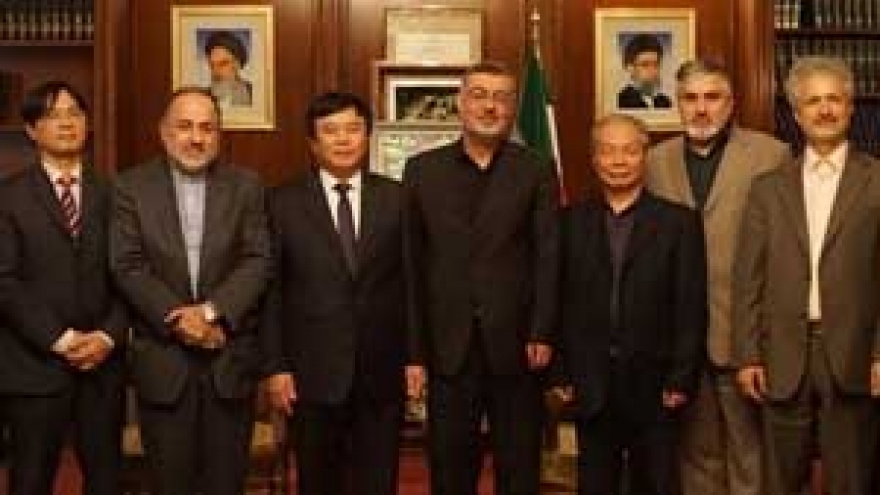Obama, Saudi king discuss strained alliance, Middle East conflicts
US President Barack Obama met Saudi Arabia's King Salman on April 20 to seek joint action on security threats including Iran and Islamic State - and to talk through tensions between the two allies that have been laid bare in recent weeks.
Obama's fourth and likely last visit to the world's top oil exporter has been overshadowed by Gulf Arab exasperation with his approach to the region, and doubts about Washington's commitment to their security.
Most of the Gulf Arab monarchies have in private been sorely disappointed by Obama's presidency, regarding it as a period in which the United States has pulled back from the region, giving more space to their arch rival Iran to expand its influence.
Obama met for two hours with Salman and a group of top princes and officials at the opulent Erga palace, a meeting that had been forecast to be awkward.
 |
"The two leaders reaffirmed the historic friendship and deep strategic partnership between the United States and Saudi Arabia," the White House said in a statement.
Obama has spoken of his desire to persuade Gulf states to arrive at a "cold peace" with Iran that would douse sectarian tensions and allow all sides to focus on what he sees as a greater threat emanating from Islamic State.
Obama praised the king's pledge of humanitarian aid to Yemen after a Saudi-led military campaign against the Iran-backed Houthi group - and talked about the need to help parts of Iraq hit hard by Islamic State fighting.
They also talked about the need to reinforce a cessation of hostilities between Syrian government and opposition forces, and their support for a political transition in the war-torn country, the White House said.
The White House did not say whether the leaders had discussed a bill proposed in the US Congress that, if passed, could hold the kingdom responsible for any role in al Qaeda's Sept. 11, 2001 attacks.
Obama has said he opposes the bill because it could expose the US to lawsuits from citizens of other countries.



